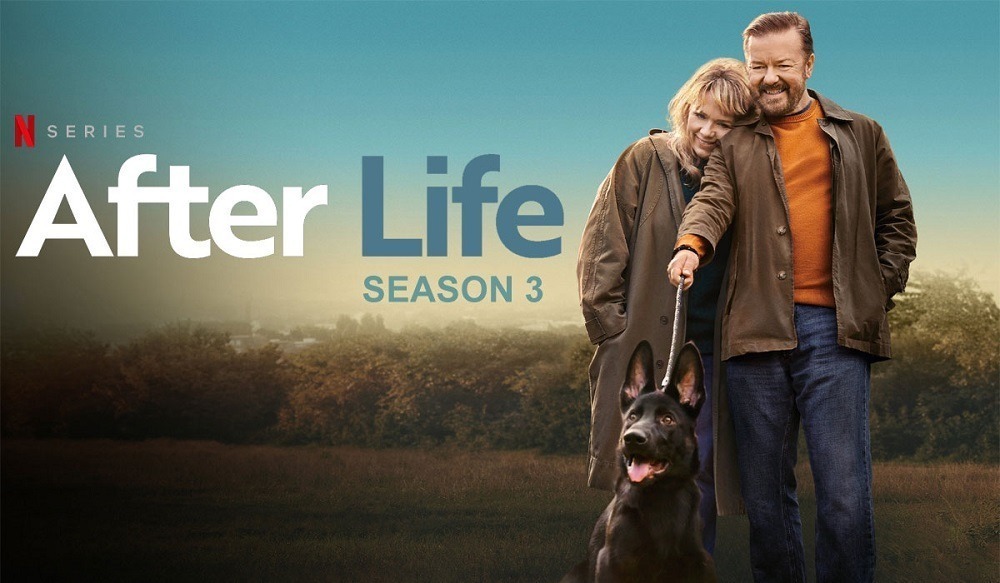
After a fantastic couple of seasons and an especially tense and heart-rending season 2 finale. Ricky Gervais has broken his own rule and returned to Tony Johnson, and his colleagues and ‘friends’ in Tamworth, but was it worth revisiting?
There’s a somewhat unspoken rule with Ricky Gervais’ works. Two seasons and a special – that’s the formula with The Office (obviously not including the USA version with Steve Carell), Extras and Derek. However, After Life has shaken off this rule to potentially give closure to Tony, the recently bereaved local journalist who is learning that after death, life goes on.
Having spent season 1 or 2 (and this review WILL assume knowledge of the previous series, so if you haven’t seen them, turn back now if you don’t want any spoilers), mired in pure misanthropy, with only some tiny flecks of kindness and goodwill shining through from Tony. Season 3 presents us with less of a man resigned to his own self-inflicted death (once he’s done being awful to everyone) and one who’s trying, in his own way, to get back to his life.
Now less of a man rampaging through town en route to his own suicide, Tony is now marginally more positive towards the townfolk and his colleagues. From not outright mocking a psychic and adult fiction novelist (same person) to helping his brother in law through health problems (in his own particular way).
That’s not to say he doesn’t have the same moments, the ones we all internalise (or at least this reviewer does) and wish we’d be able to express without consequence. From dealing succinctly with a driver running over a zebra crossing without stopping, to the loud hipster dad ‘entertaining’ his child in a quiet village cafe, Gervais manages to channel the inner impulses we hide beneath social veneers and hurl them out from Tony.
The series also focuses on the lives of those around Tony more, from the struggles of Kath, his colleague to find love through a string of dates so cringeworthy they could be featured on Peep Show, to the frankly awful living situation from aspiring actor/performer James (Ethan Lawrence) and the disturbing Brian Gittins (played somehow with a straight face by David Earl).
Guided and encouraged by fellow grieving partner Anne (Penelope Wilton), Tony manages to find his way to positivity of sorts with his colleagues and friends, as well as resolving his relationship as much as he can with his deceased father’s nurse and erstwhile love interest of sorts, Emma (Ashley Jensen) The latest season has already received mixed views due to this positive lean, particularly in the closing moments of the show, but this reviewer can’t think of a way that Tony’s old attitude could have closed a third season out.
Had the series ended at season 2, with Tony holding the pills, ready to go until he’s interrupted, that last glimmer of hope may have been enough to end it. But having come from those moments; from attempting suicide, facilitating someone else’s, and ruining everything around him – the only way to end season 3, was with something more bittersweet. It’s not a complete fairytale ending – it simply shows that life does go on, even if it’s not the same, or what we expected.
The show shouldn’t be measured by the ending alone however. The true skill in the performance and writing comes from the caricatures of those found in a town. The amplified personalities that are still believable enough to pass muster and be relatable enough and human enough for them to resonate with the viewer.
The show is easily bingeable in a weekend, so if you want something to laugh, cry and cringe at – load up Netflix and enjoy.
Author: Tom, Cardiff Store






